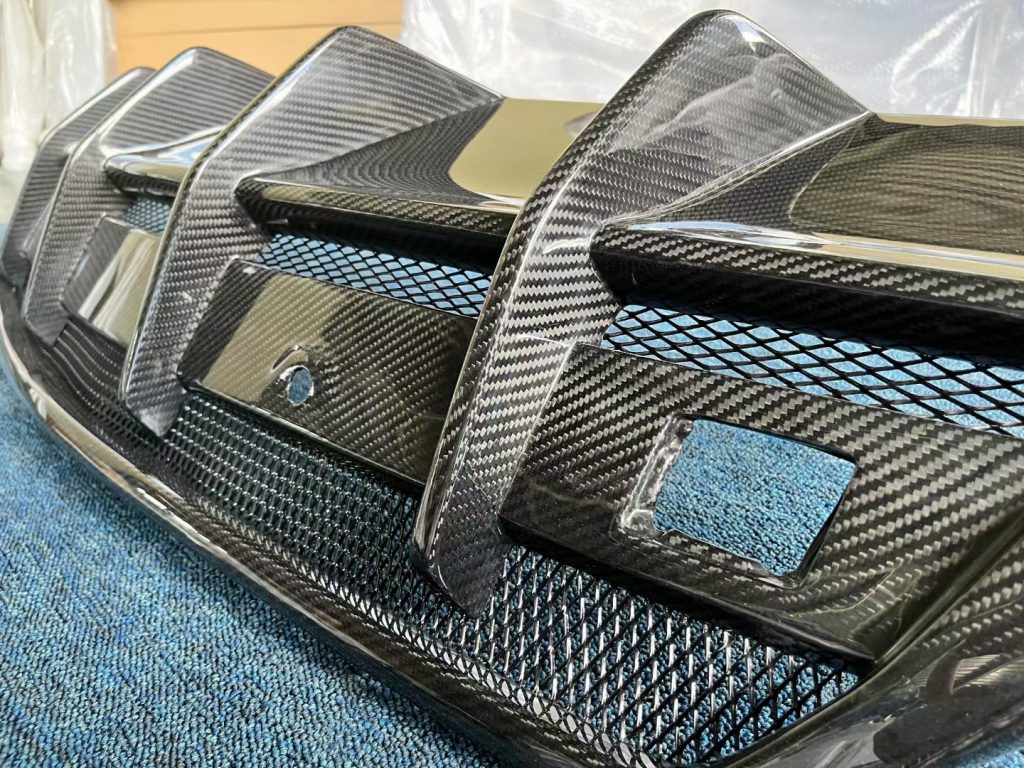Automakers are increasingly focusing on lightweighting technologies to improve fuel efficiency and reduce emissions. The application of carbon fiber composite materials in automobile wheels provides an important solution to achieve this goal. The following are the application advantages of carbon fiber composite materials in lightweight automobile wheels:

Lightweight and high strength: Carbon fiber composite materials are lighter than traditional metal wheels, but have excellent strength and rigidity. This reduces the overall weight of the vehicle and improves fuel economy.
Improved suspension performance: Reducing wheel weight helps improve suspension performance, including better suspension response, a smoother ride and increased comfort.
Reduced braking burden: Lighter wheels reduce the burden on the braking system, improving braking performance and durability.
Improve acceleration performance: Lightweight wheel hubs help improve the vehicle’s acceleration performance and make the vehicle more dynamic.
Reduced Rolling Resistance: Lighter wheels reduce rolling resistance and improve fuel economy.
Corrosion Resistance: Carbon fiber is not susceptible to corrosion, so the wheel lasts longer and does not require additional corrosion protection.
Design freedom: When manufacturing carbon fiber wheels, it is easier to achieve a variety of complex designs to meet the appearance and performance requirements of automobile manufacturers.
The application of carbon fiber composite materials provides a feasible solution for lightweighting automobile wheels, which not only helps reduce fuel consumption and emissions, but also improves vehicle performance and driving experience. This makes carbon fiber wheels an integral part of future car designs.
Friends who need carbon fiber thermoplastic prepreg are welcome to come to One Victor Composite Technology for consultation!
